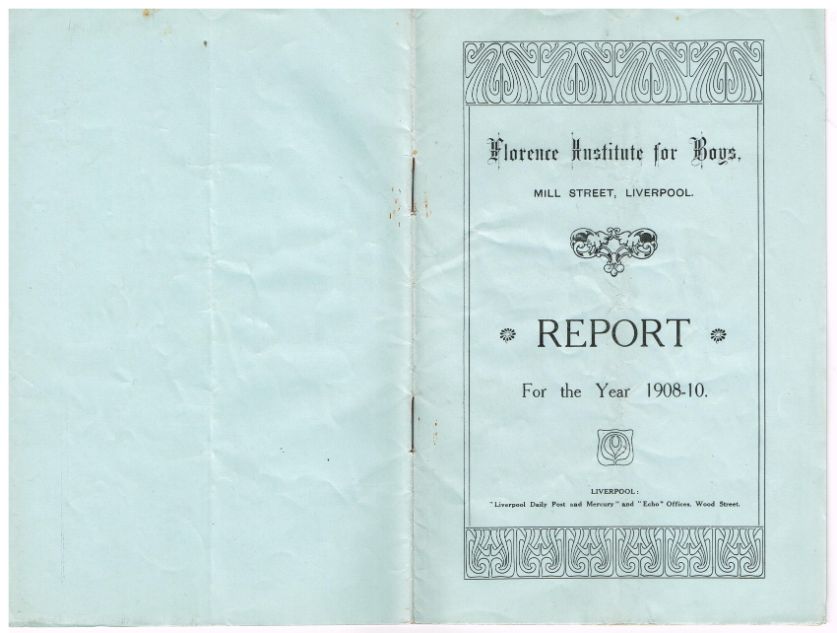
1908
The Twentieth Annual Report lamented a decline in members due to effective competition from other Institutes, local churches and evening education classes, which most members attended three times a week. Despite this, they still paid the full price of their subscription to The Florence, which would eventually take its toll on their resources.
Furthermore, summer camp was cancelled as only a handful of volunteers were available. ‘No effective Boys Club work can be done without a large sacrifice of time and trouble, but work done in those hopeful years of adolescence is perhaps the most effective and certainly the most attractive to man, of all social work. An undermanned club may easily degenerate into a mere lounging-place. There are hardly any limits to the potentialities of a well-managed, effective club’.
In light of this, the Institute accepted an element of risk and healthy competition would always exist, but warned against complacency. The Institute introduced a new registration system, that would be able to report statistical information on its successes. In order to achieve this, the Institute had to venture a little further afield than usual, and reported, ‘Some of our committee have been visiting the best of the Manchester clubs, on the look-out for useful hints for the benefit of The Florence’.
For future sustainability the Institute recognised the need and opportunity to make good connections with Liverpool College, in the hope that ‘many boys of the College when they leave school will come and help at the Florence. The soundness of the connection of schools with social work is well proved. If the old boys of the College will come to the Club they will be doing most valuable work’.
The swimming club also branched out, and formed an affiliation with the Royal Lifesaving Society. Eight boys completed their Bronze Medallion certificate. A special silver medal was awarded to Ernest Geddes, who had passed his examination the previous year, before heroically rescuing a man from drowning in the Herculaneum Dock.
Mr Runacus, who was an old member of The Florence took up the role of Instructor of Boxing. The committee were eager to point out ‘The instructor is careful to see that there is no slogging, and that the couples are well matched’.
Entertainments were still averaging 500 per night, with a programme mostly consisting of The Minstrels and Pierrot Troupes. The committee acknowledged “While the entertainments are thoroughly sound from a moral point of view, one feels they are not quite the ideal thing for the club”. From this they concluded one man or a group of men should take charge to arrange The Institute’s music and drama throughout the season, as entertainments remained to be in danger of dullness and monotony. Furthermore, the irregular attendance of musicians threatened the flagship Orchestral Society.
Sadly, the end of the decade marked the deaths of Mr. Percy B Hall, and his sister Miss Margaret Bernadine Hall, children of The Florence Institute’s founder.
THE FLORENCE INSTITUTE
- 0151 728 2323
- info@theflorrie.org
- 377 Mill Street, L8 4RF
- We are open: 9am – 6pm Monday to Friday.
Registered Office: The Florence Institute Trust Ltd, 377 Mill Street, Liverpool L8 4RF. Charity Registration No: 1109301. Company Registration No: 05330850 (registered in England and Wales).
